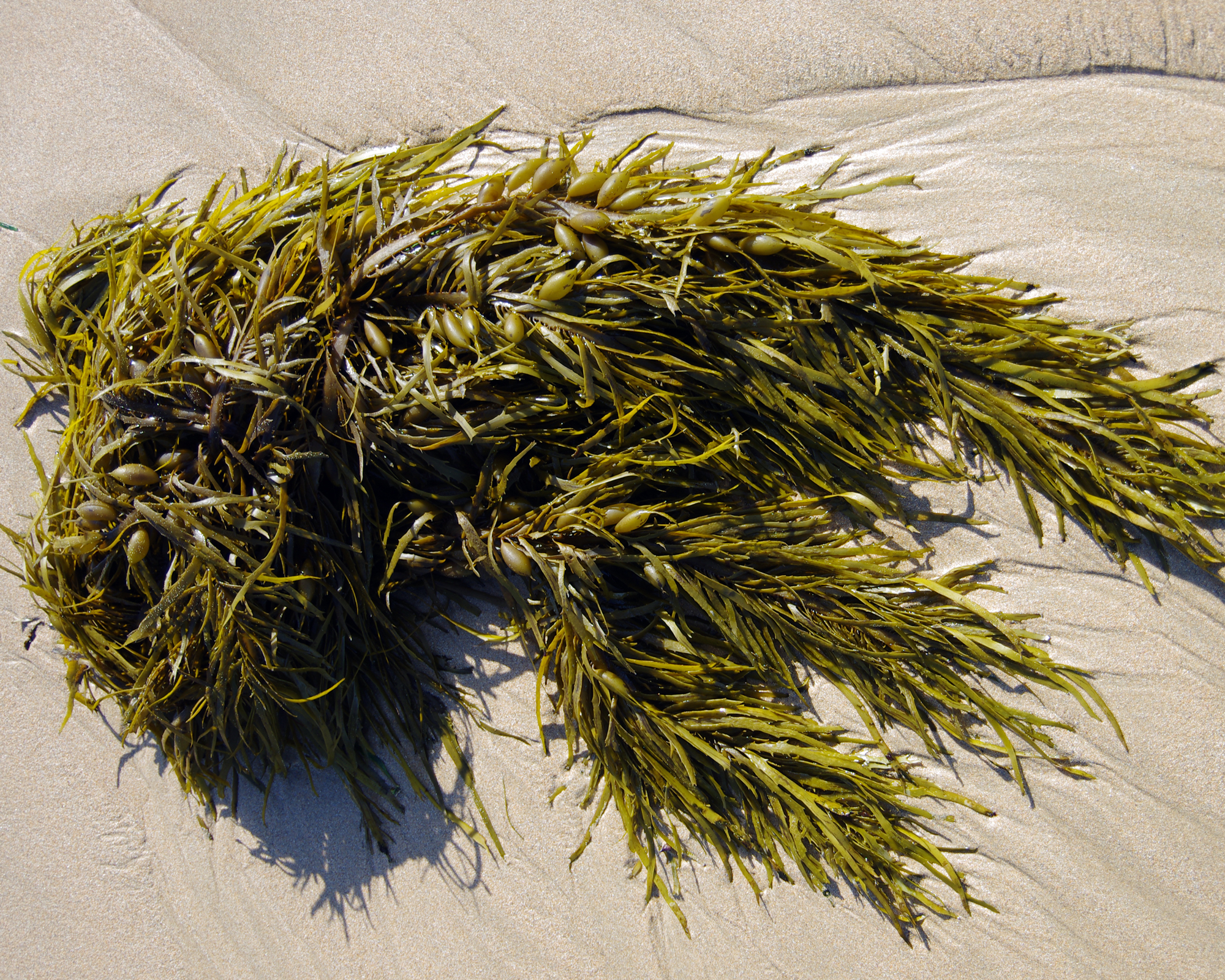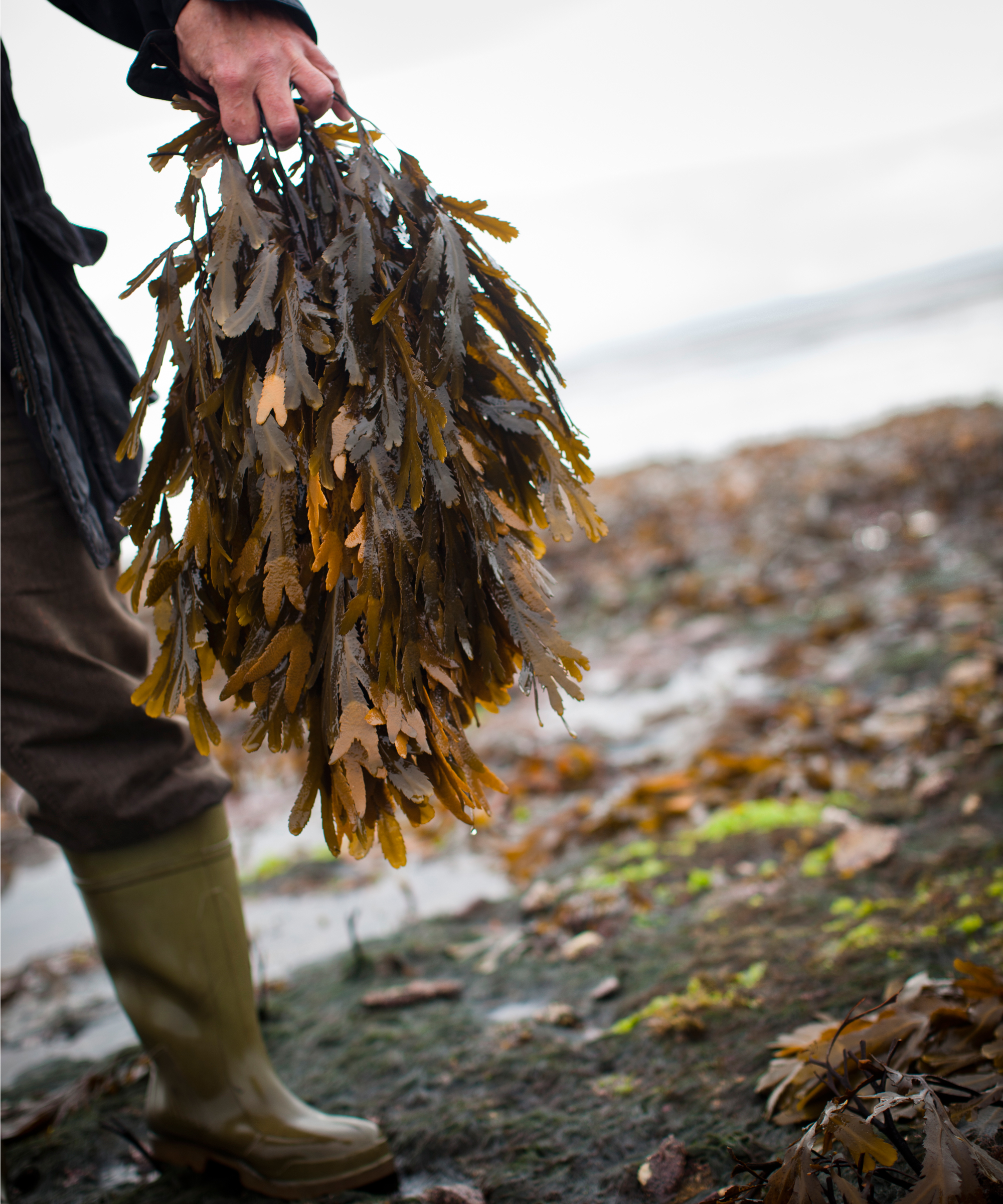The benefits of seaweed fertilizer make it uniquely useful in the garden, experts say
Gardening experts reveal the benefits of seaweed fertilizer for your plants, and how to use it

The benefits of seaweed fertilizer may well convince you to give your regular fertilizer a miss. A unique marine plant, seaweed has been used as fertilizer since time immemorial to enrich soil and improve harvest. It has even won the honor of becoming Monty Don's fertilizer of choice.
While learning how to compost is one way to improve your garden soil, using seaweed may well take your garden to a whole new level. Gardening experts explain why.

What are the benefits of seaweed fertiliser?
The benefits of fertilizing with seaweed as opposed to a general garden fertilizer are numerous. The main one is that seaweed is very high in nutrients – and these nutrients are highly bioavailable, which means your plants will easily absorb them. Erinn Witz, garden expert and co-founder of Seedsandspades.com, explains: 'It’s pretty easy to use commercial fertilizer to get the three macronutrients your plants need (nitrogen, phosphorus, potassium). But micronutrients are just as critical to plant health, and they can be harder to come by. Seaweed contains over 40 vitamins, minerals, and other key nutrients, all in a bioavailable form your plants can easily absorb.'
Christi Kelly, the publisher of PatioGardenLife.com, a website about container gardening, gives a more scientific breakdown of the way seaweed works when used as a fertilizer: 'Hormones found uniquely in seaweed stimulate root growth. The alginic acid in seaweed forms a filmy layer on plant surfaces. That creates a larger contact area, which makes it easier for the plant to absorb water-soluble vitamins and minerals.'
The other great benefit of seaweed is that it acts as a natural pest repellent. According to Christi, 'Common garden pests like slugs and insects avoid seaweed because of its salt content.' So, if you're looking at how to get rid of slugs, seaweed may well be the answer.

If you need more convincing, consider the fact that, as Christi says, seaweed is 'organic, non-toxic and doesn’t need to decompose before working it into your soil.'
Erinn also makes a point of this unique benefit: 'If you’re lucky enough to live near the coast and harvest your own seaweed, you can put it in your garden straight away. Unlike organic materials like manure that need to break down for months before they’re safe, you can apply your seaweed as soon as you get it home.'
This makes seaweed perfect for reviving a garden that needs a nutrient boost quickly and is perfect for use as part of your wildlife garden ideas.

What is the best way to apply seaweed fertilizer?
If you live in a coastal area, the best way to apply seaweed fertilzier is directly to the soil after simply collecting it from your local beach. Jeremy Yamaguchi, a gardening expert and the CEO of Lawn Love, said that 'while it's possible to use dried seaweed, you won't get as much benefit. I recommend using fresh seaweed and mixing it into a nutrient-dense soil mixture, then letting it compost naturally to act as fertilizer.'
Erinn agrees: 'If you’re using freshly harvested seaweed, all you need to do is lay it down in generous layers in your garden.' She adds that 'For commercial formulas, you’ll usually see seaweed fertilizer in granule or concentrated liquid form. Both these forms are best applied in water, so follow the package directions to dissolve or dilute your granules or concentrate. Then use the mixture to water your plants at the soil level, being careful not to splash the plant leaves in the process.'
Whether you use fresh seaweed or store-bought seaweed fertilizer, there's no doubt that this gift from the sea has huge benefits for your plants, which makes it well worth seeking out.
Anna writes about interior design and gardening. Her work has appeared in Homes & Gardens, Livingetc, and many other publications. She is an experienced outdoor and indoor gardener and has a passion for growing roses and Japanese maples in her outside space.
